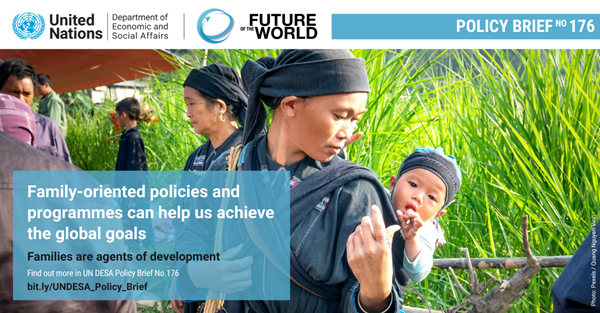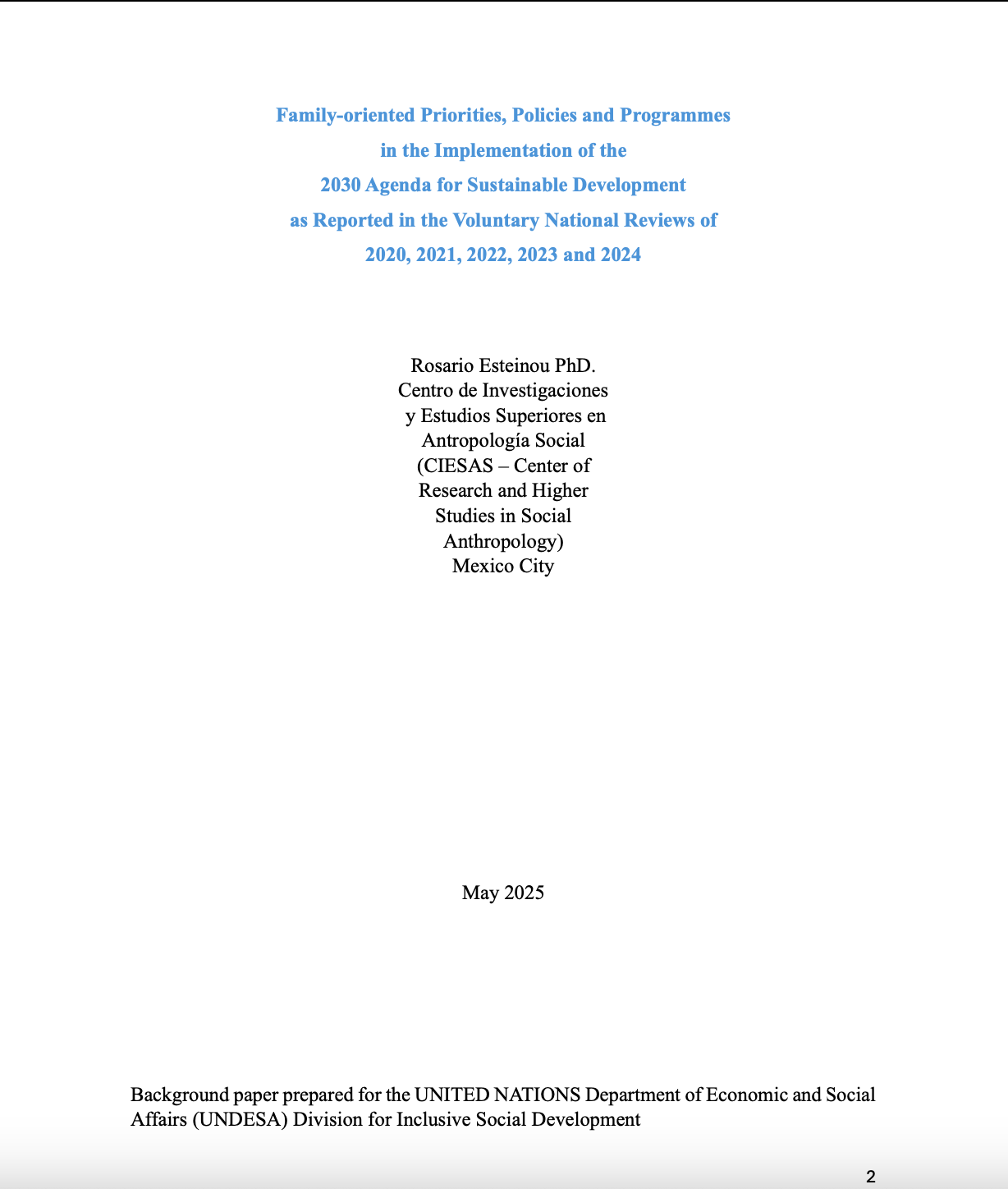Publications
Displaying 1 - 6 of 6
UN General Assembly Reports on Social Development |
The report addresses how diverse contexts amplify the barriers faced by persons with disabilities, particularly those subjected to discrimination or whose rights are not upheld. It examines the situation of persons with disabilities and the status of implementation of the Convention on the Rights of Persons with Disabilities in four such contexts: (a) rural or remote areas; (b) migration and forced displacement; (c) the criminal justice system; and (d) institutional settings, and provides an overview of good practices taken to reduce the amplified barriers within these contexts, by States Parties and United Nations entities. The report includes recommendations to States Parties for the…
UN General Assembly Reports on Social Development |
As part of the preparations for and observance of the thirtieth anniversary of the International Year of the Family, the report is focused on the impact of climate change on the well-being of families, highlighting challenges relating to food and water scarcity, worsening physical and mental health, increased intrafamilial violence and child marriage. In the report, the Secretary-General focuses on the role of families in climate action, as food producers, educators, consumers and advocates, and elaborates on policy implications, including under updated nationally determined contributions. He also highlights good practices in family policymaking at the national and regional levels and…
UN General Assembly Reports on Social Development |
The report provides an update on progress made by the United Nations system in advancing disability inclusion and implementing the UN Disability Inclusion Strategy. Six years since its launch, the Strategy has helped integrate disability considerations into planning, strengthened leadership commitment, and promoted more inclusive programming. However, challenges remain in transforming organizational culture to be fully inclusive of persons with disabilities.Drawing on progress reports from UN entities and country teams, the report reviews developments from 2019 to 2024, identifies barriers and enablers, and offers recommendations to strengthen coordination, implementation, and monitoring.…
UN ECOSOC Reports on Social Development |
As part of the preparations for and observance of the thirtieth anniversary of the International Year of the Family, the report is focused on the impact of climate change on the well-being of families, highlighting challenges relating to food and water scarcity, worsening physical and mental health, increased intrafamilial violence and child marriage.In the report, the Secretary-General focuses on the role of families in climate action, as food producers, educators, consumers and advocates, and elaborates on policy implications, including under updated nationally determined contributions. He also highlights good practices in family policymaking at the national and regional levels and…
Policy Briefs |
This policy brief presents a global analysis of 171 Voluntary National Reviews (2020–2024) from 141 countries addressing core aspects of family well-being by focusing on policies related to: poverty reduction (SDG1), food security and nutrition (SDG2), health and well-being (SDG3), quality education (SDG4), and gender equality (SDG5). These VNRs demonstrate little and uneven progress in implementing family-oriented policies, compared to the 2016–2019 VNRs. There is modest positive progress in reducing poverty, improving maternal and child mortality, and increasing access to water and sanitation services. However, family-oriented policies addressing extreme poverty and food insecurity have…
Publication |
The 2025 VNR Synthesis Report prepared by UN DESA’s Division for Inclusive Social Development examines how family-oriented policies have contributed to the implementation of the Sustainable Development Goals (SDGs), based on 171 Voluntary National Reviews submitted by 141 countries between 2020 and 2024. It adopts a multidimensional analytical framework that integrates socioecological models, welfare regimes, redistributive approaches, social investment, and gender responsiveness to assess family wellbeing across key SDG areas such as poverty reduction, health, education, gender equality, and urban development. The report highlights that while families remain central to development efforts…
 Welcome to the United Nations
Welcome to the United Nations





